Search for lost village Ravenser Odd to aid coastal erosion research
- Published
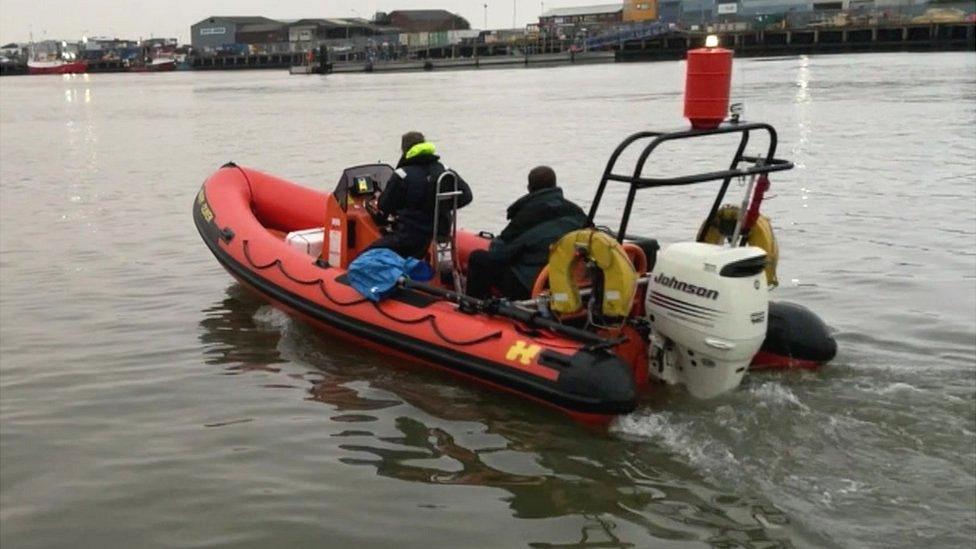
Scientists have set out to search for Ravenser Odd, which was lost to the sea about 600 years ago
A group of scientists has launched a search for the site of a medieval village swallowed by the sea about 600 years ago.
Ravenser Odd, on the East Yorkshire coast, was one of many settlements lost to coastal erosion since Roman times.
A team from the University of Hull is using sonar in a bid to locate the remains of the town.
They hope the results will help them to predict future coastal erosion as sea levels rise.
Prof Dan Parsons said: "Sea levels have been very steady for the past 10,000 years now human action has changed our coastal environment."
He said erosion in more recent times had been "accelerated" and the research was fundamental to "predicting and mitigating the sea level rises baked into our climate system".
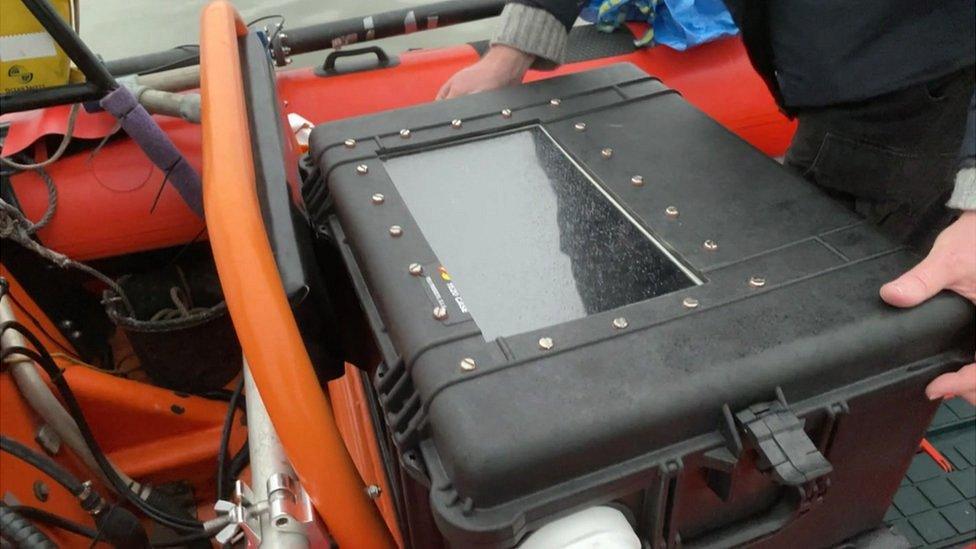
Sonar sends pulses of sounds through the water which reflect from the sea floor
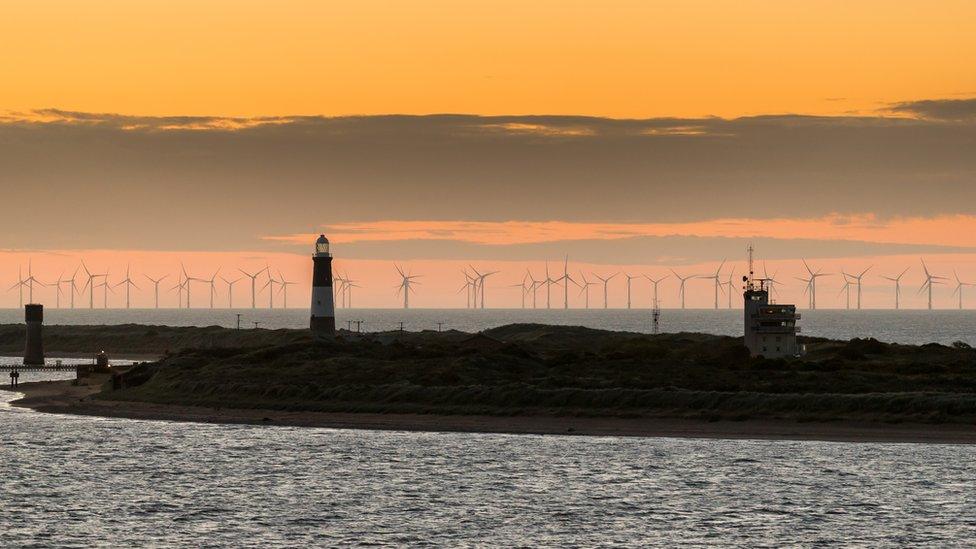
Spurn Point is a thin spit of land 3.5 miles (6km) long and sandwiched between the North Sea and the Humber Estuary
Ravenser Odd, near Spurn Point, was founded in the 13th Century and became a thriving Humber port.
Over the course of about 100 years some of the town's buildings were lost to erosion before it was completely destroyed in the 1360s.
A recent sea surge in December 2013 inundated the narrowest part of the Spurn peninsula and removed a stretch of road.
Prof Parsons said the coastline in the area was "really dynamic" as Spurn Point sits at the end of the eroding coast.
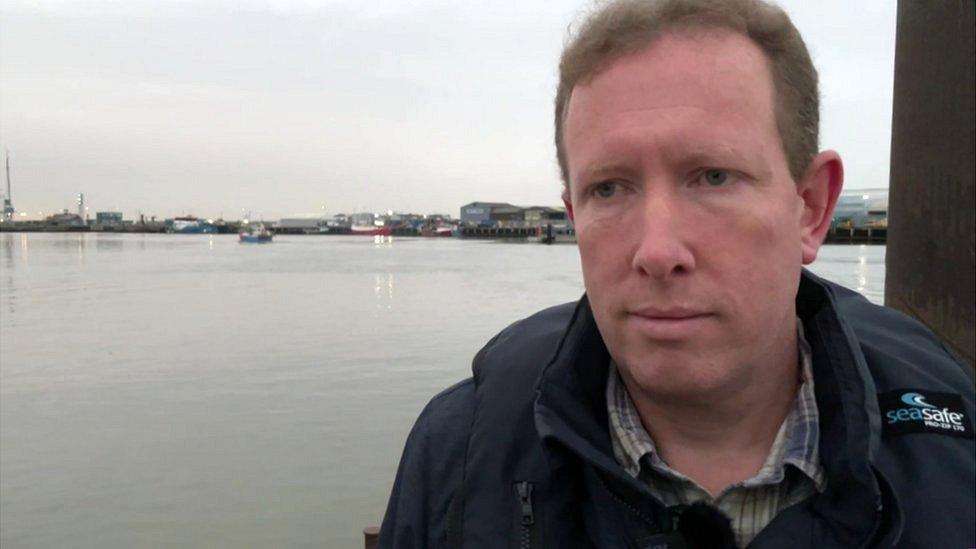
Dr Steve Simmons and his team left Grimsby in an inflatable to search off Spurn Point
The experts hope using a sonar system will map the seabed near Spurn and find the village's remains.
Dr Steve Simmons, of the university, said using sonar would "build up a very detailed picture of the seafloor".
"We should get some good images. Whether we find what we are looking for is yet to be seen", he added.

Follow BBC Yorkshire on Facebook, external, Twitter, external and Instagram, external. Send your story ideas to yorkslincs.news@bbc.co.uk, external.
Related topics
- Published26 December 2018
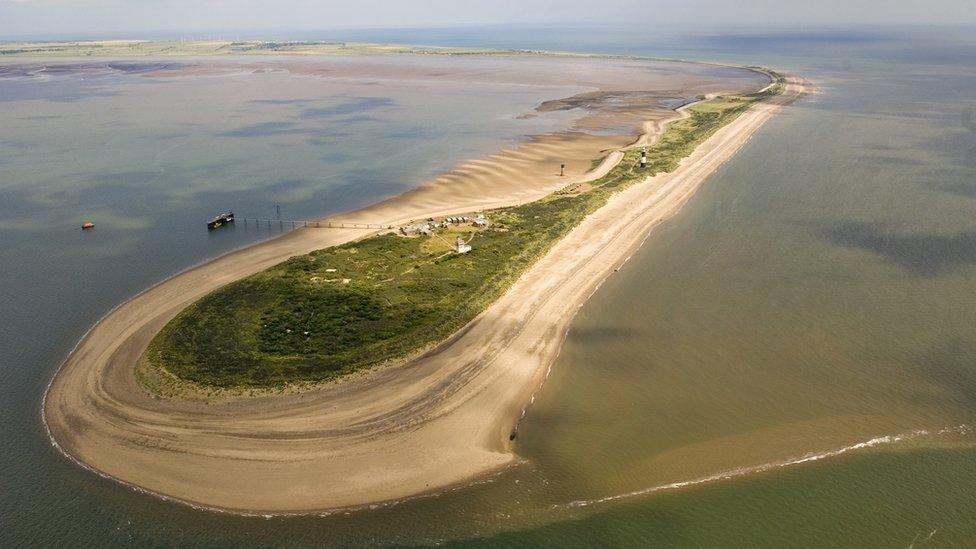
- Published20 March 2018
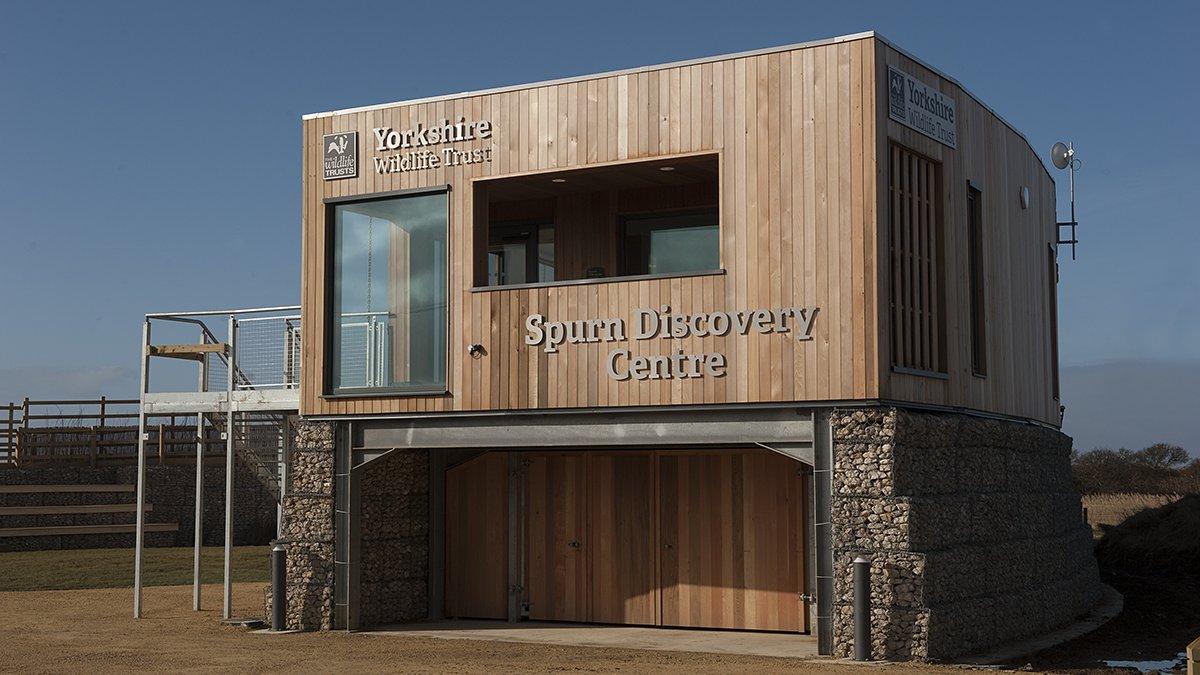
- Published11 January 2014
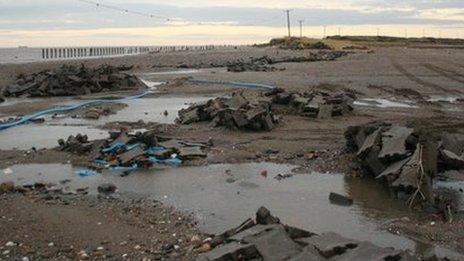
- Published11 April 2013